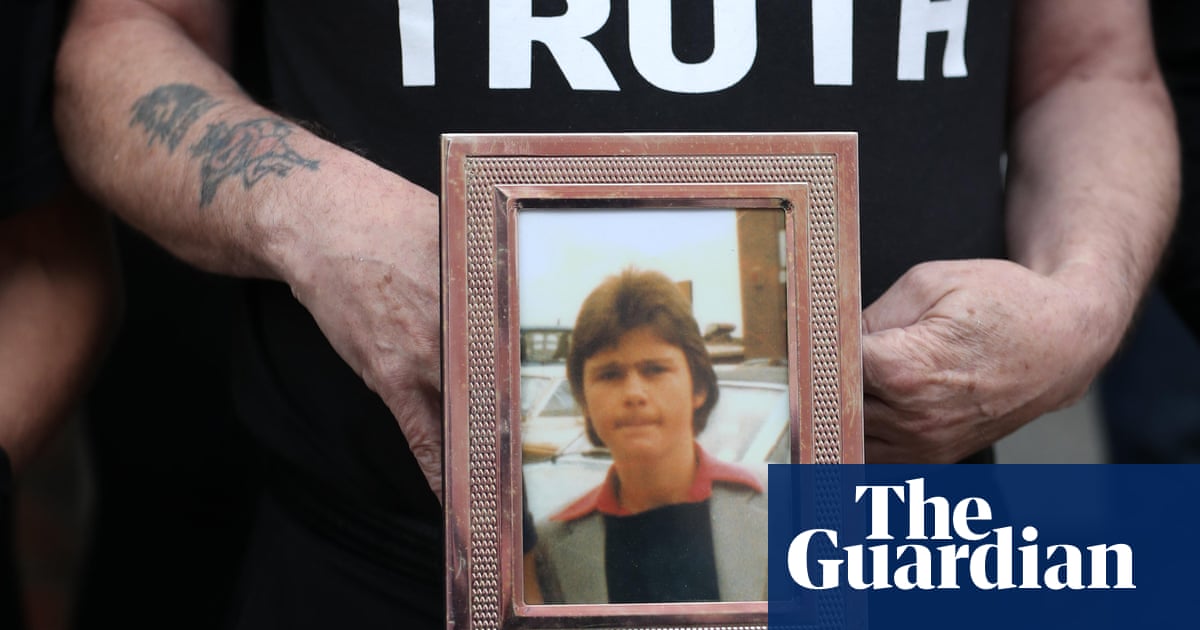Forty-eight young people were unlawfully killed after an electrical fault started an inferno at the Stardust nightclub in Dublin in 1981, an inquest jury has found.
The jury delivered the verdict in a coroner’s court on Thursday more than four decades after a disaster considered one of the darkest moments in Ireland’s history.
Survivors and relatives of those who died applauded, wept and thanked the jury for a decision that appeared to deliver catharsis after a long quest for justice and accountability.
The conflagration in the north Dublin suburb of Artane on Valentine’s night killed 48 people, aged 16 to 27, injured 214, and left questions over how it started and why it claimed so many victims.
The jury concluded the fire stemmed from an electrical fault in the hot press in the bar of the Stardust Ballroom and that polyurethane foam seating and carpet tiles on the walls contributed to the fire’s spread.
Smoke, heat, lack of staff preparedness, ignorance of the building’s layout and emergency lighting failures impeded people’s ability to escape, the jury found. Asked if locked, chained or otherwise obstructed exits impeded the ability of any of the dead to escape, the jury foreman said “yes”.
After the verdicts relatives embraced and rose to applaud the jury, with one person shouting “thank you”. The inquest lasted 12 months.
Families said previous efforts, including a tribunal of inquiry, a victim compensation tribunal and two legislature-appointed reviews, were rushed, perfunctory or botched, reflecting official indifference to working-class communities.
The tribunal of inquiry that convened within three weeks of the fire found the “probable cause” was arson, outraging the families who said it smeared the dead and allowed the nightclub manager, Eamon Butterly, to claim £580,000 compensation for malicious damage.
The arson finding was removed from the public record in 2009 but families said only a fresh inquest could absolve those who died.
The coroner, Myra Cullinane, paid tribute to the families’ persistence in obtaining a fresh inquest. “To the families, I acknowledge the deaths of these 48 young people is a source of ongoing grief to those who loved them and it remains the defining loss of their lives.
“However, I hope that family members will have taken some solace from the fact that these fresh inquests were held, that the facts surrounding the deaths were examined in detail, that moving testimony was heard from many of those involved in the events of the night and, most importantly, that you the families felt fully involved in proceedings, however difficult it was to hear all of the evidence.”
Families marched to the Garden of Remembrance carrying photographs of those who died and a black banner that said: “They never came home.” Some called for a state apology over flaws in the investigation of the blaze and what they termed callousness towards survivors and relatives.
President Michael D Higgins said the inquest findings were a result of tireless campaigning.
“I am very conscious that today will be a day of the deepest emotions for the loved ones of those who died,” he said.
“A day of vindication and of honour, but also a day of the deepest sadness and regret. I think in particular of those whose passing means this conclusion comes too late for them.”
The taoiseach, Simon Harris, said the families had carried the weight of the disaster with strength and dignity.
“The Stardust tragedy was one of the darkest moments in our history, a heartbreaking tragedy because of the lives that were lost, the families that were changed forever, and the long, drawn-out struggle for justice that followed.
“Their relentless pursuit of truth and accountability, their profound commitment to justice, even in the face of overwhelming challenges and setbacks, was not only a fight for their loved ones but a campaign to ensure that such a disaster never happens again.”
The government will consider the verdict and the jury’s recommendations, Harris said.

